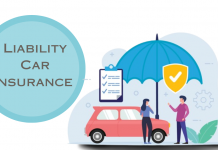Insurance fraud affects millions of people every year, costing companies and individuals significant financial losses.

By understanding how it happens and learning ways to avoid it, policyholders can protect themselves and help reduce the cost of insurance premiums for everyone.
What is Insurance Fraud?
Insurance fraud is any intentional act by an individual or organization to deceive an insurance provider for financial gain.
This can include exaggerating a claim, faking an accident, or lying on an insurance application.
Fraud can occur in many types of insurance, including auto, health, property, and life insurance.
Some forms of insurance fraud are relatively minor, while others are major schemes involving large sums of money.
Types of Insurance Fraud
There are several types of insurance fraud, each varying in severity and method. Here are the most common types:
- Soft Fraud: This involves policyholders exaggerating a legitimate claim. For instance, inflating the value of damages after an accident is a form of soft fraud.
- Hard Fraud: Hard fraud occurs when someone deliberately causes an accident, theft, or damage to file a fraudulent claim.
- Internal Fraud: Sometimes, fraud is committed by insurance agents or employees within an insurance company. This can involve manipulating policies or inflating claims for personal gain.
- Policyholder Fraud: This type occurs when policyholders commit fraud, such as providing false information on an application to get lower premiums or make claims on events that didn’t happen.
- Application Fraud: This type of fraud happens during the insurance application process, where applicants may misrepresent their information to secure a better rate.
How Insurance Fraud Happens
Fraud can occur in almost every area of insurance. Here are some ways fraudsters attempt to deceive insurance providers:
- Auto Insurance Fraud: This can include staged accidents, false repair bills, and inflated claims for damage or injury.
- Health Insurance Fraud: This type often involves billing for services not provided, inflating costs, or submitting duplicate claims.
- Property Insurance Fraud: Examples include faking a home burglary, setting fire to property, or claiming damage that didn’t occur.
- Life Insurance Fraud: Fraudsters might stage a death to collect life insurance benefits, often in collaboration with others.
The Consequences of Insurance Fraud
The consequences of insurance fraud are serious, impacting individuals, insurers, and society at large. Here are some ways it affects everyone:
- Financial Impact: Insurance fraud results in billions of dollars in losses every year. Insurance companies often pass these losses onto consumers in the form of higher premiums.
- Legal Consequences: Insurance fraud is a criminal offense. Those caught can face hefty fines, imprisonment, or both.
- Higher Premiums for Consumers: Honest policyholders bear the costs, as insurance companies raise rates to offset losses from fraud.
Warning Signs of Insurance Fraud
Being able to spot fraud is essential to preventing it. Here are some common signs:
- Unusual Claim Activity: Excessive or suspicious claims in a short time can be a red flag.
- Inconsistent Documentation: Any irregularities in the paperwork, such as errors or missing information, can indicate fraud.
- Pressure from Agents or Brokers: If an agent is pushy or attempts to guide you into questionable practices, it may be a sign of fraud.
How to Protect Yourself from Insurance Fraud
Protecting yourself from insurance fraud starts with awareness and vigilance. Here are some practical ways to avoid becoming a victim:
- Verify the Credibility of Insurance Agents: Before signing up, verify the credentials of the insurance agents. Check licenses and look for reviews from other clients to ensure legitimacy.
- Report Suspicious Claims: If you suspect fraudulent activity, report it to the insurer’s fraud department or a fraud reporting agency. Reporting helps prevent the fraud from spreading further.
- Be Aware of Common Scams: Educate yourself about common scams in your area, such as staged accidents or false billing. Familiarizing yourself with these tactics helps you recognize fraud when you see it.
- Keep Documentation Secure: Always protect your personal and policy information. Secure any sensitive documents and avoid sharing personal information unless necessary.
How Insurance Companies Detect and Prevent Fraud
Insurance companies work actively to detect and prevent fraud. Here are some of the methods they use:
- Technology and AI: Insurance providers use data analysis, machine learning, and artificial intelligence to flag suspicious claims and identify patterns of fraud.
- Collaboration with Law Enforcement: Insurers often collaborate with law enforcement agencies to share information and pursue legal action against fraudsters.
- Policies and Procedures: Insurers have established protocols for investigating claims and verifying information to ensure that claims are legitimate.
Steps to Take if You Suspect Insurance Fraud
If you suspect fraud, taking action can help prevent further issues. Here’s what to do:
- Report the Fraud: Contact your insurance provider or local law enforcement to report the suspected fraud.
- Gather Evidence: Collect any documents, receipts, or other evidence that can support your claim or concern.
- Cooperate with Authorities: Work with your insurance company and law enforcement to assist in their investigation.
The Role of Law Enforcement in Combating Insurance Fraud
Law enforcement agencies play a critical role in combating insurance fraud. They work closely with insurance providers to investigate fraud cases and bring offenders to justice.
These agencies have specialized fraud units dedicated to preventing and prosecuting insurance fraud.
Insurance Fraud Statistics and Trends
Insurance fraud is a significant problem worldwide. According to recent data, insurance fraud costs the industry billions each year.
Newer scams are also emerging, including cyber-fraud, where hackers use personal information to make false claims. These trends highlight the need for continuous vigilance.
FAQs
How common is insurance fraud?
Insurance fraud is unfortunately common, with billions lost every year. The cost often results in higher premiums for honest policyholders.
What should I do if I’m accused of insurance fraud?
If accused, gather any evidence that can support your innocence, and consider consulting with a legal expert. Most insurance companies have a review process to handle disputed claims.
Can I report fraud anonymously?
Yes, many insurance companies and fraud-reporting agencies accept anonymous tips. Reporting fraud helps reduce its impact on the industry.
CHECK THESE OUT:
- Car Insurance for New Drivers – Car Insurance Is Getting Smarter for New Drivers
- Malpractice Insurance – What is Malpractice Insurance
- Car Insurance for Nurses
- Collision Car Insurance – How Collision Car Insurance Protects you on the Road



